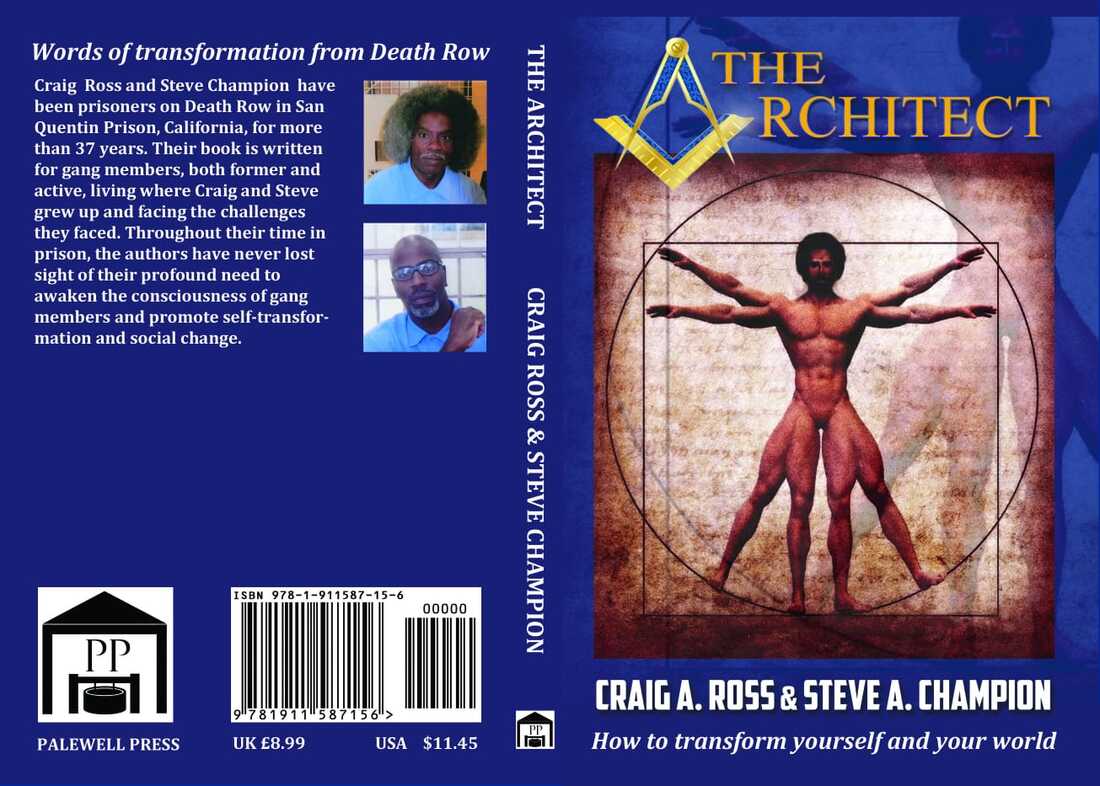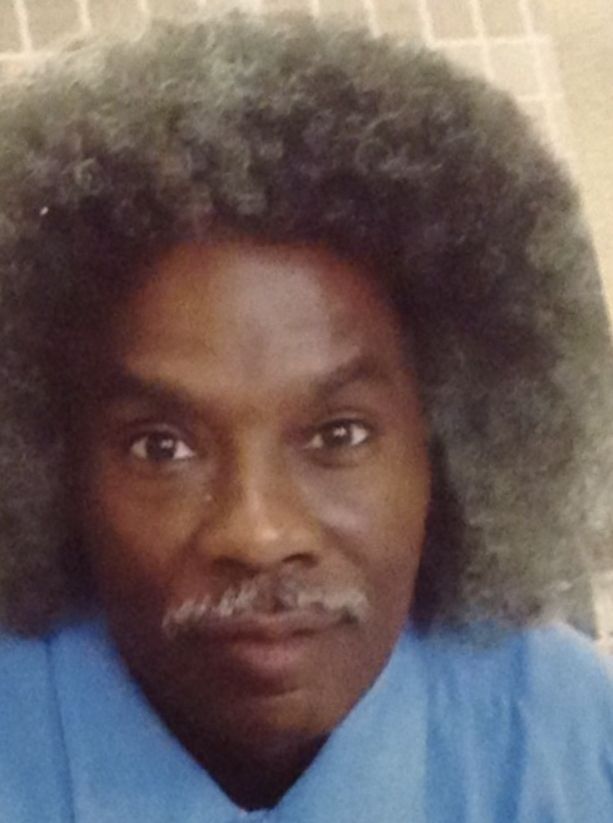|
by Steve A. Champion and Craig Anthony Ross Palewell Press - September 2019 The Architect - Words of Transformation from Death Row. Steve Champion and Craig Ross have been prisoners on death row in San Quentin, California for more than 37 years. The Architect is written for gang members both former and active. Throughout their time in prison the Authors have never lost sight of their profound need to awaken the consciousness of gang members and promote self-transformation and social change. After years of hard work, perseverance, determination and a strong belief that what they have to say is important and can make a difference, Craig Ross and Steve Champion are excited to share the news that they are publishing "The Architect" in September 2019. For the past year, they have been working with Camilla Reeve, Senior Editor from UK based Human Rights publisher Palewell Press Ltd. Camilla Reeve immediately understood their vision for this book, and worked with them throughout the challenging obstacles that can be faced whilst trying to make your voice heard from behind the prison walls of death row. The result is an enlightening and groundbreaking book which they hope will reach the far corners of the world and will help to bring about positive change and personal transformation. The official press release about the book is here below. And there is a downloadable press release at the bottom of this page. Please spread the word! The Architect A radical social treatise about African American gangs in the 21st century. This book is more than just a blueprint for selftransformation and the reconstruction of gang culture. It is also a unique step-by-step guideline that shows gang members themselves how to do it. Ross and Champion’s analysis builds upon – and expands – the work that Crips gang co-founder and Nobel Peace Prize nominee Stanley “Tookie” Williams was committed to before his death. The Architect seeks to change the narrative about gang members by providing them with an independent and selfsustaining plan of action and empowerment. This book is the first of its kind. The authors are two well-respected Crips emeritus from Los Angeles, who are now prominent in the criminal justice reform movement. They also reside on death row at San Quentin State Prison. Ross and Champion’s street and prison experience enables them to offer in The Architect authentic, honest dialogue about the problems gang members face and the potential solutions to those problems. The Architect was written for gang members. But anyone working for real community change should read The Architect. The triumph over violence requires extreme responsibility—not just from gang members, but from everyone.
The Architect from Palewell Press, London, UK ISBN: 978-1-911587-14-9 Publication: September 2019 $11.45 and £9.25 From www.amazon.com and www.palewellpress.co.uk/Palewell-Publications.html#The-Architect
6 Comments
by Steve Champion - incarcerated on death row San Quentin since 1982 Below is an excerpt from a chapter of the memoir “Dead to Deliverance: A Death Row Memoir” written by Steven Champion, a former member of the Crips street gang who is on death row. Tom Kerr, associate professor of writing at Ithaca College, edited and published the book. The public, with its hunger for revenge, does not want to hear about personal acts of atonement by people who have been sentenced for a crime. Acts of atonement by the condemned are usually viewed as a ploy to save his or her own life — not as a genuine act of redemption. People on death row are deemed the lowest of the low. Many people believe death-row prisoners cannot be “reformed” because they are “unformed” as human beings. Executing the condemned is not viewed the same as killing a human — it is chalked up to society’s attempt to rid itself of its toxic waste. Proponents of capital punishment freeze condemned-to-die criminals at the worst moments of their lives; to justify their execution, they must be barred from redemption. But history is full of individuals who have made major mistakes but manage to turn their lives around and make significant contributions to humanity. Many religious people have mixed emotions about whether a murderer can be redeemed. But when it comes to biblical figures like Moses, King David and Saint Paul, they are quick to make exemptions. In fact, these figures are highly revered around the world precisely because society has determined that their contributions to humanity outweigh their crimes. Why are some people worthy of redemption while others are denied it? Why are death-row prisoners damned as unrepentant criminals incapable of transforming their lives? Redemption is not reserved for some. Redemption is a road map for reconnecting to one’s humanity. If redemption is not meant for people who have lost their way and hit rock bottom, then the word ought to be stricken from every dictionary. Redemption means regaining something you have lost through improving your life. Many people, in and out of prison, never atone for anything; they go to their graves defiant and unrepentant. A person who has the courage to look within himself and decide to transform his life ought to be encouraged, if not applauded. Some recent recipients of the Nobel Peace Prize were not always seen as champions of peace. In 2001, both Nelson Mandela and Frederik de Klerk became Nobel Peace Prize laureates. De Klerk was the head of an apartheid government that openly oppressed, discriminated against and murdered blacks, and considered Mandela a terrorist. Mandela once headed the guerrilla wing of the African National Congress, which believed in armed violence. In 1994, both Yitzhak Rabin and Yasser Arafat were awarded the Nobel Peace Prize for their efforts to create peace in the Middle East. Prior to receiving the Nobel Prize, Arafat was labeled a terrorist. Yitzhak Rabin was prime minister of Israel and sanctioned violence against the Palestinians. All of these people were viewed unfavorably in their lifetimes, but were able to transcend their mistakes — because society accepted the fact that they were not the sum total of their mistakes. No one is. The transformative power of redemption can change anyone who is sincere about changing. It makes no difference if a person lives in a temple in Tibet, an ashram in India or a prison cell on death row. Your location should not diminish the value of your redemption. Steven Champion has been on California’s death row for 36 years, since he was 18 years old. Originally published by the Ithacan in 2010
|
Adisa Kamara
Poetry, writing & Lessons in Life from San Quentin death row Archives
July 2019
Categories
All
Archives
July 2019
|
||||||||


 RSS Feed
RSS Feed